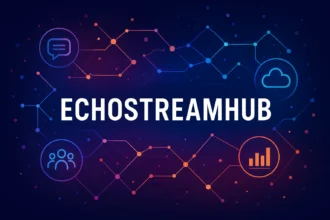APIs (Application Programming Interfaces) are the backbone of the modern internet, facilitating data exchange between mobile apps, microservices, and client-side applications. When hosting an API, the core performance metrics are latency (how fast a request is answered) and concurrency (how many requests can be handled simultaneously). For APIs that are data-intensive, real-time, or need to handle thousands of concurrent users, a Cloudzy node.js VPS offers distinct advantages that other hosting solutions struggle to match.
Why is Node.js the ideal runtime environment for low-latency API calls?
Many APIs involve numerous I/O operations—reading from a database, querying a third-party service, or accessing a cache. In traditional hosting models, these I/O operations create bottlenecks.
Node.js, however, excels at this task due to its non-blocking architecture:
- Minimal Waiting: When an API endpoint needs to perform an I/O operation (like retrieving user data), Node.js hands off the task and immediately accepts the next incoming API request. It does not wait for the I/O to complete.
- Rapid Response: Because it’s not waiting, the single-threaded Event Loop can swiftly handle requests that don’t involve I/O, and as soon as the database query returns, the API response is formatted and sent back with minimal delay.
This non-blocking efficiency, combined with the dedicated CPU resources of a VPS, results in consistently low latency for API calls, which is critical for smooth user experiences in mobile and web applications.
What are the key scalability benefits of hosting an API on a dedicated Node.js VPS?
API usage is often unpredictable, with sudden spikes in traffic (e.g., during a product launch or a viral event). The hosting solution must scale gracefully to handle this load without crashing or slowing down.
A dedicated Node.js VPS provides superior scalability over shared hosting:
- Guaranteed CPU Allocation: The VPS ensures that the API’s processes always have the processing power they need, preventing the throttling that kills API performance on shared servers.
- Clustering with PM2: By utilizing a process manager like PM2 (easily installed on a VPS), the Node.js application can be clustered. This means multiple instances of the single-threaded application run simultaneously, utilizing every CPU core of the VPS. This maximizes throughput without the complexity of configuring a massive load-balancing cluster.
When planning to buy vps for an API, the ability to activate multi-core clustering on a fixed-resource server provides the best combination of scalability and cost control.
How does the Node.js ecosystem enhance API development and deployment?
The Node.js ecosystem offers extensive tooling that simplifies every aspect of API development, which is easily leveraged on a VPS:
- Middleware Frameworks: Tools like Express.js (the de facto standard) and Koa.js provide a robust, minimal, and highly flexible set of middleware components for routing, authentication, and error handling, allowing developers to build APIs quickly.
- Unified Language Stack: Since the API backend (Node.js) and often the client-side frontend (JavaScript frameworks) use the same language, developers can share code, validation logic, and knowledge, reducing development friction and accelerating time-to-market.
- Deployment Simplicity: The VPS provides the perfect environment for CI/CD pipelines. A developer can use Git to push changes, and the VPS automatically builds and deploys the new Node.js image with minimal downtime, ensuring the API is always up-to-date.
Conclusion
Hosting APIs on a Node.js VPS is a strategic decision driven by the pursuit of speed, concurrency, and development efficiency. The unique non-blocking architecture of Node.js, combined with the dedicated, guaranteed resources of a VPS, ensures consistently low latency for API consumers and superior handling of high concurrent load. For any business that relies on a responsive, scalable, and reliable API to connect its services and data, the Node.js VPS is the optimal infrastructure choice.
FAQ (Frequently Asked Questions)
Is a Node.js VPS secure enough for sensitive API data? Yes, it is highly secure. A VPS provides server isolation, meaning your API is protected from other users on the physical machine. Furthermore, you have root access to configure specialized security protocols, firewalls, and SSL/TLS termination (often handled by NGINX) to meet industry-standard API security requirements.
Should I use a separate database server for my API on the VPS? For small to medium-sized APIs, running the database (like MongoDB or PostgreSQL) on the same VPS is often efficient and cost-effective, provided the VPS has ample RAM and CPU. For very high-traffic APIs, the database is often separated onto its own dedicated VPS or specialized database service to ensure the Node.js application has maximum resources.
Does a Node.js VPS support API versioning? Yes. Developers can use standard Node.js frameworks like Express.js to implement robust API versioning (e.g., /api/v1, /api/v2). The NGINX reverse proxy on the VPS can also be configured to help route requests to different API versions running on different ports, ensuring continuous support for older clients.
How do I monitor the performance of my API on the Node.js VPS? The Node.js ecosystem and the VPS environment offer excellent monitoring tools. PM2 provides built-in monitoring of CPU, RAM, and process status. Furthermore, you can easily install and configure external monitoring agents like New Relic or Prometheus, which integrate with your Node.js application to track API latency, error rates, and throughput in real-time.

















